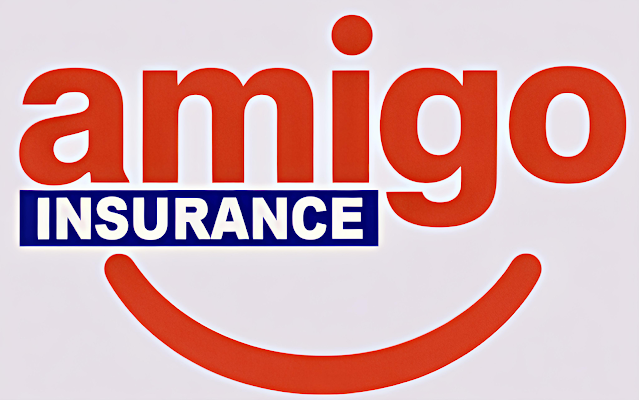FutuHow AGI Impacts Renters and Condo Insurance
AGI renters condo insuranceAs we navigate the vast and intricate landscape of modern technology, the emergence of Artificial General Intelligence (AGI) is poised to revolutionize numerous aspects of our lives, including how we approach renters and condo insurance. Future-proofing your home in the age of AGI involves understanding its potential impacts on real estate, insurance policies, and personal property protection. In this comprehensive guide, we’ll delve into the intricacies of AGI’s influence on renters and condo insurance, offering insights and strategies for safeguarding your home against the backdrop of technological advancement.
The concept of AGI refers to a hypothetical AI system that possesses the ability to understand, learn, and apply its intelligence across a wide range of tasks, comparable to human intelligence. This technology has the potential to automate complex decision-making processes, enhance predictive analysis, and offer personalized services based on individual preferences and needs. Within the context of home insurance, AGI could significantly alter the way insurance companies assess risks, calculate premiums, and provide coverage. For instance, AGI-driven algorithms might analyze data from various sources, including environmental sensors, smart home devices, and public records, to predict the likelihood of natural disasters, theft, or structural damage to a property. This could lead to more accurate risk assessments and, consequently, more tailored insurance policies that better reflect the actual risks faced by homeowners or renters.
Understanding AGI’s Impact on Risk Assessment in Home Insurance

The integration of AGI in the insurance sector is expected to enhance the accuracy of risk assessments, making insurance policies more personalized and efficient. AGI systems can analyze vast amounts of data, including historical trends, real-time sensor data, and personal behavior patterns, to predict potential risks more accurately than traditional methods. This advanced risk assessment capability can lead to several benefits, including more competitive premiums for low-risk properties, improved prevention measures through predictive maintenance, and enhanced customer service through personalized policy recommendations. However, the reliance on AGI for risk assessment also raises concerns about data privacy, algorithmic bias, and the potential for discrimination in insurance pricing.
For renters and condo owners, understanding how AGI impacts their insurance policies is crucial. AGI-driven insurance platforms might offer dynamic pricing that adjusts according to real-time risk factors, such as the installation of security systems or the presence of hazardous materials in the building. Furthermore, AGI could facilitate the creation of customized insurance packages that cover specific risks pertinent to the location and type of property. For example, a condo in a flood-prone area might have an insurance policy that includes flood protection as a standard feature, with premiums adjusted based on the condo’s specific flood risk as assessed by AGI algorithms. This level of personalization and adaptability can provide renters and condo owners with better protection against unforeseen events, potentially lowering their financial risks and enhancing their peace of mind.
Enhancing Home Security with AGI-Integrated Smart Home Systems
The integration of AGI with smart home systems represents a significant advancement in home security and insurance. AGI can analyze data from various smart devices and sensors to detect anomalies, predict potential security breaches, and automatically initiate preventive measures. For instance, an AGI-powered smart home system might recognize unusual patterns of entry and exit, indicating a potential break-in attempt, and alert both the homeowner and the authorities. This proactive approach to security can significantly reduce the risk of burglaries and vandalism, thereby lowering insurance claims and potentially leading to reduced premiums for homeowners who invest in such advanced security systems.
AGI-integrated smart home systems also offer the potential for real-time monitoring and maintenance, which can be particularly beneficial for condo owners and renters. By continuously assessing the condition of appliances, plumbing, and electrical systems, AGI can predict when maintenance is required, preventing unexpected breakdowns and reducing the risk of accidents or damage. This proactive maintenance can lead to cost savings, reduced downtime, and an overall improvement in the quality of living. Furthermore, the data collected by these smart systems can be shared with insurance providers, potentially leading to more accurate risk assessments and tailored insurance policies that reflect the reduced risk profile ofwell-maintained properties.
Navigating the Legal and Ethical Implications of AGI in Home Insurance

As AGI becomes increasingly integral to the home insurance sector, several legal and ethical considerations come to the forefront. One of the primary concerns is data privacy, given that AGI systems rely on vast amounts of personal and property-related data to function effectively. There is a need for robust data protection regulations to ensure that this data is handled securely and with transparency, respecting the privacy rights of individuals. Moreover, the potential for algorithmic bias in AGI-driven risk assessments and policy pricing raises ethical questions about fairness and discrimination, necessitating ongoing audits and tests to prevent unfair practices.
Regulatory frameworks will also need to adapt to address the challenges and opportunities presented by AGI in home insurance. This includes clarifying the liability for damages or losses caused by errors in AGI systems, establishing standards for data sharing and usage, and ensuring that the benefits of AGI, such as personalized premiums and enhanced risk management, are accessible to all segments of the population. For renters and condo owners, understanding these legal and ethical implications is crucial for making informed decisions about their insurance coverage and for advocating for policies and practices that protect their interests in the age of AGI.
Preparing for the Future: Strategies for Renters and Condo Owners
In preparation for the future of home insurance in the age of AGI, renters and condo owners should adopt a proactive and informed approach. This includes staying updated on the latest developments in AGI and its applications in the insurance sector, as well as understanding how these advancements might impact their current and future insurance needs. Investing in smart home devices and security systems integrated with AGI can offer enhanced protection and potentially lower premiums. Moreover, engaging with insurance providers that are at the forefront of AGI adoption can provide access to more personalized and efficient insurance services.
It’s also essential for renters and condo owners to review their insurance policies regularly, ensuring they have adequate coverage for emerging risks and that their premiums reflect the benefits of any smart technologies or security measures they have implemented. Advocating for transparency and fairness in AGI-driven insurance practices is crucial, pushing for regulatory frameworks that protect consumer rights and ensure that the benefits of technological advancements are shared equitably. By embracing these strategies, individuals can not only future-proof their homes against the uncertainties of tomorrow but also contribute to shaping the insurance industry of the future, one that is more resilient, personalized, and protective of all stakeholders involved.
Conclusion: Embarking on the AGI-Driven Future of Home Insurance
The integration of Artificial General Intelligence into the home insurance sector marks the beginning of a new era, characterized by personalized policies, enhanced risk management, and unprecedented efficiency. For renters and condo owners, understanding and embracing this technological shift is key to navigating the future of home insurance effectively. By staying informed, adopting proactive strategies, and advocating for consumer protections, individuals can harness the potential of AGI to secure better protection for their homes and investments. As we move forward, the interplay between technology, regulation, and consumer needs will continue to evolve, shaping the contours of an insurance industry that is more responsive, more personalized, and more equipped to face the challenges of the 21st century. In this dynamic landscape, the future of home insurance is not just about mitigating risks but about creating a safer, more secure, and more prosperous living environment for all.
agi renters condo insurance
Share this content:









Post Comment